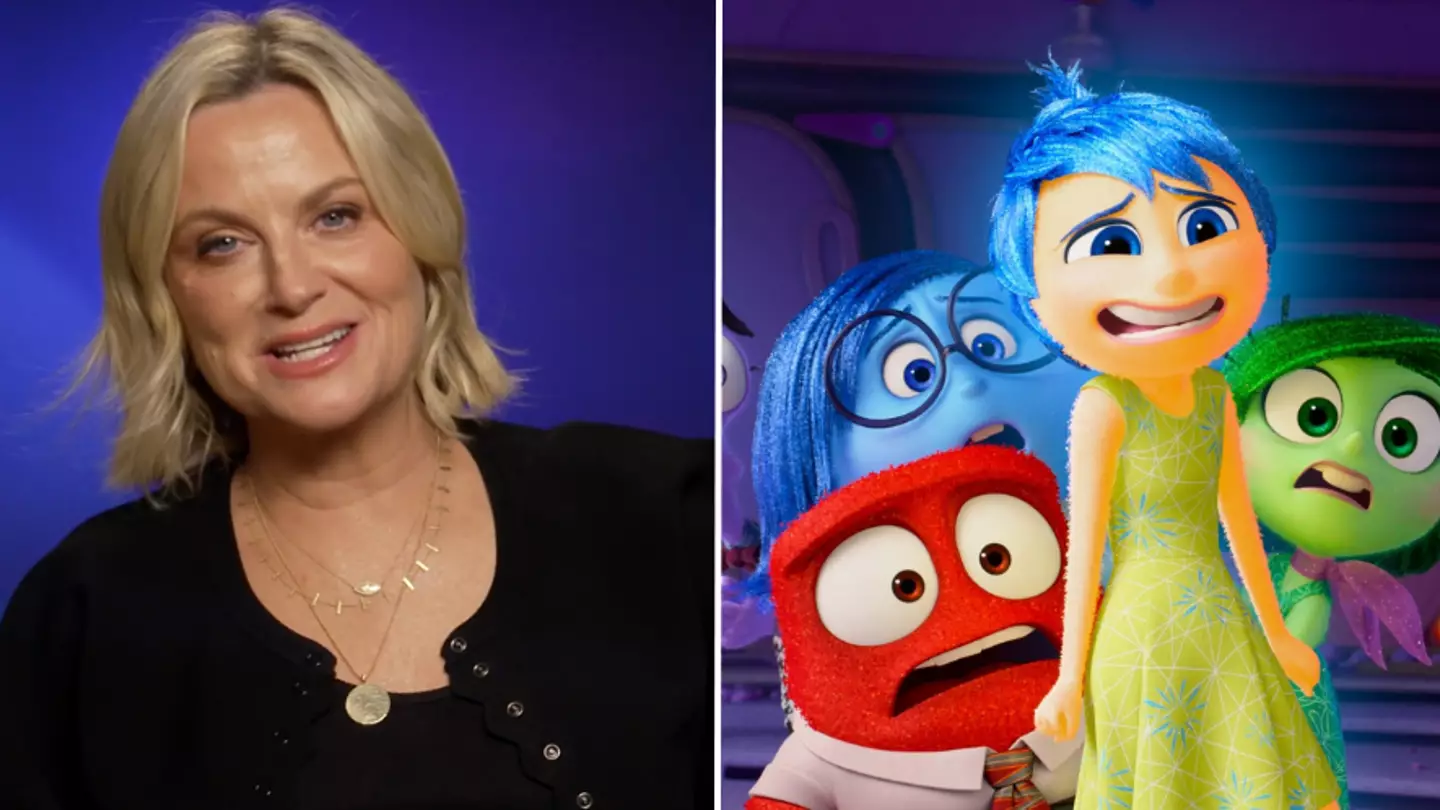
Ever since Inside Out first hit our screens back in 2015, it's safe to way we've all been itching for our next fix.
Well, the wait is now over as the sequel to the highly-successful Disney Pixar flick is now just around the corner.
Check out the official trailer here:
Advert
Now, in case you need your memory jogging, the children's film brilliantly conceptualises the inner workings of our minds - namely focussing on a child named Riley while bringing to life the various emotions in her mind, such as Joy, Sadness, Anger, Fear and Disgust.
However, nearly a decade on from the first film, Inside Out 2 brings with it a whole new set of emotions, adventures and one particularly chaotic 'Hormone Control Panel' as Riley transitions from an 11-year-old into puberty and teenage-hood.
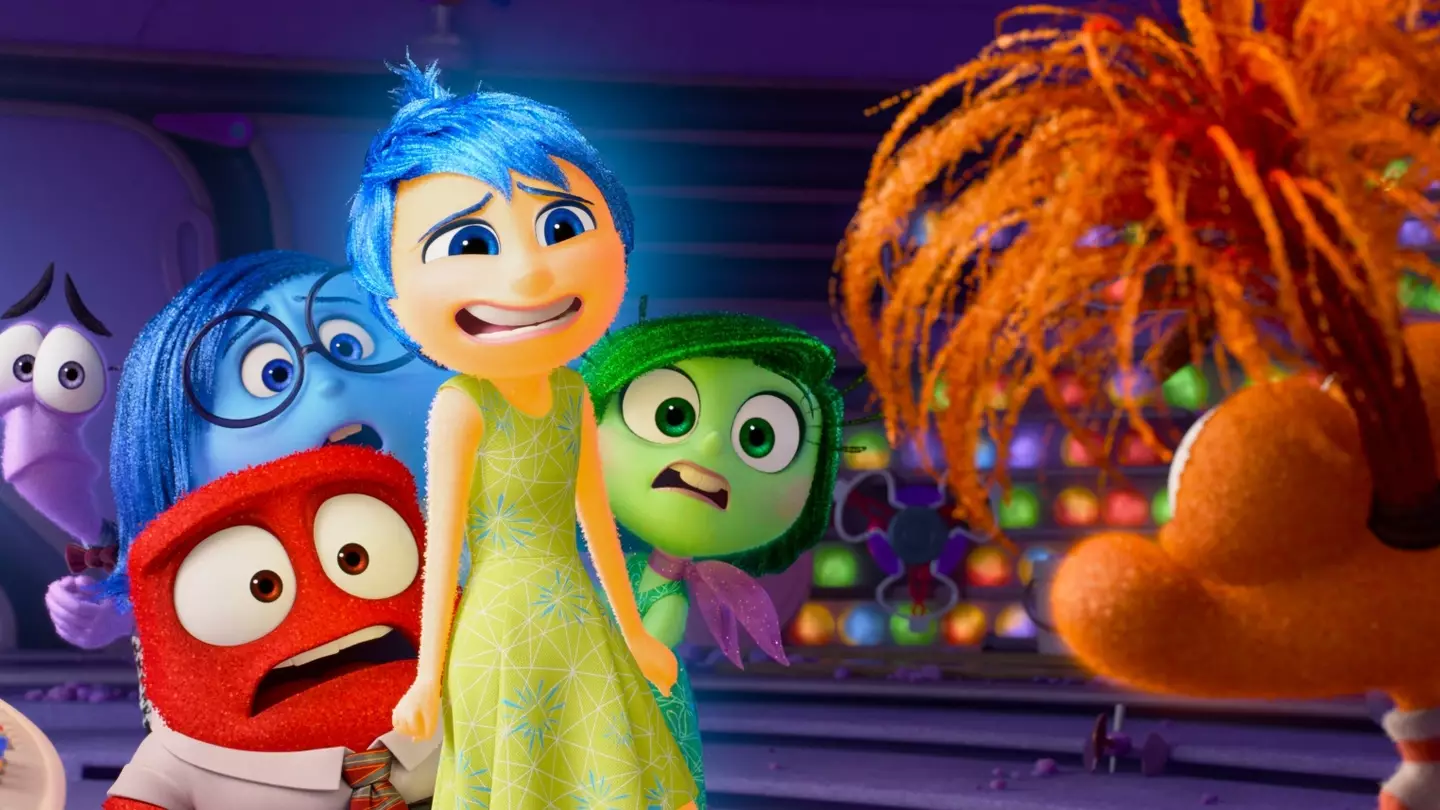
Award-winning actor Amy Poehler voices the character of Joy in both films and she recently sat down with Tyla to tell us all about the sequel, why it's different and just how important it is in changing the way we look at mental health.
One of the most noticeable differences we see with Inside Out 2 compared to the first film is the introduction of new, more 'complex' emotions including Envy, Embarrassment, my personal favourite, Ennui, and - of course - Anxiety.
As Riley turns 13, Anxiety rocks up the headquarters and pretty much 'takes over' the reigns from Joy.
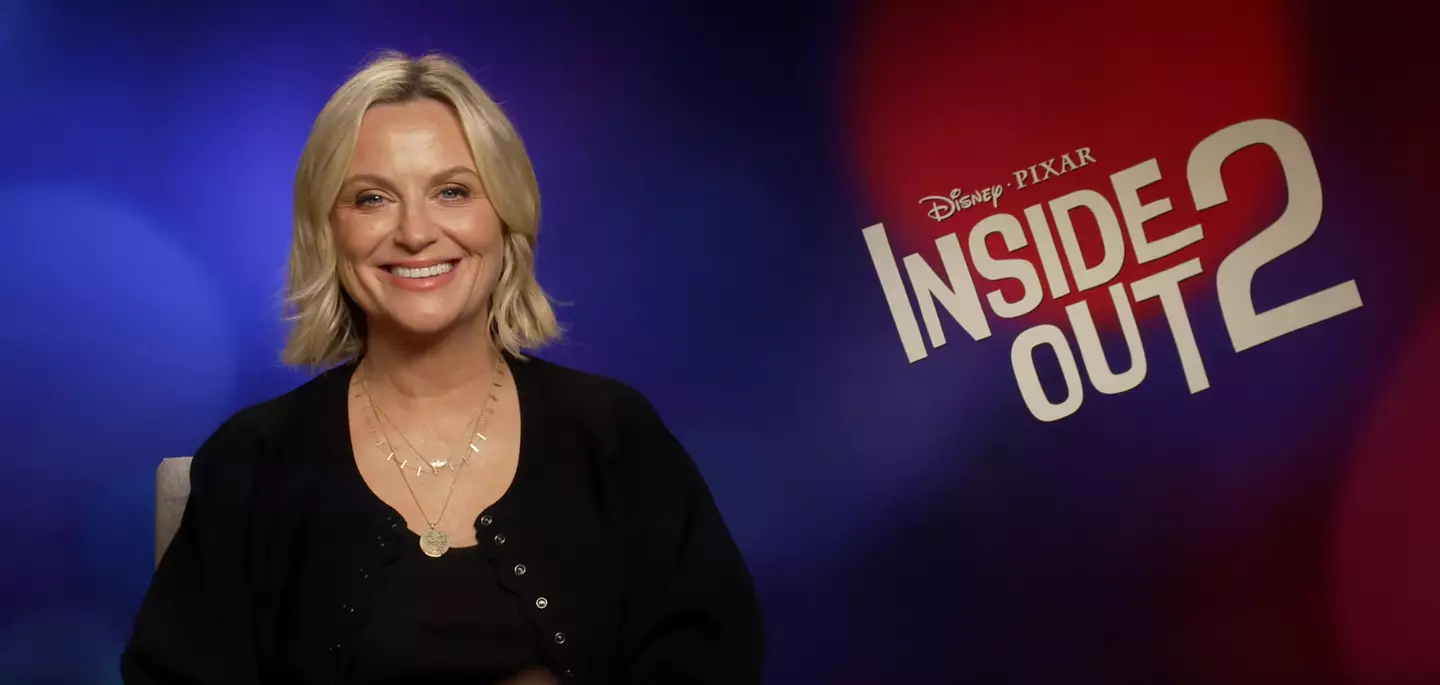
Amy tells Tyla: "Joy is pushed to the side in a way that confuses her and confuses a lot of the other emotions.
"The emotions get bottled up and sent away and, in the meantime, all these complex, new and, frankly, confusing emotions are in charge.
"It's so well done because it's just showing us the way, when you're a young person, how you're trying to figure out your belief system, what you care about in the world, who you are, and you just try on a lot of stuff even in the course of one conversation."
It has been almost a decade now since the first Inside Out was released and a lot has changed culturally since then, especially in the terminology we use to talk about mental health.
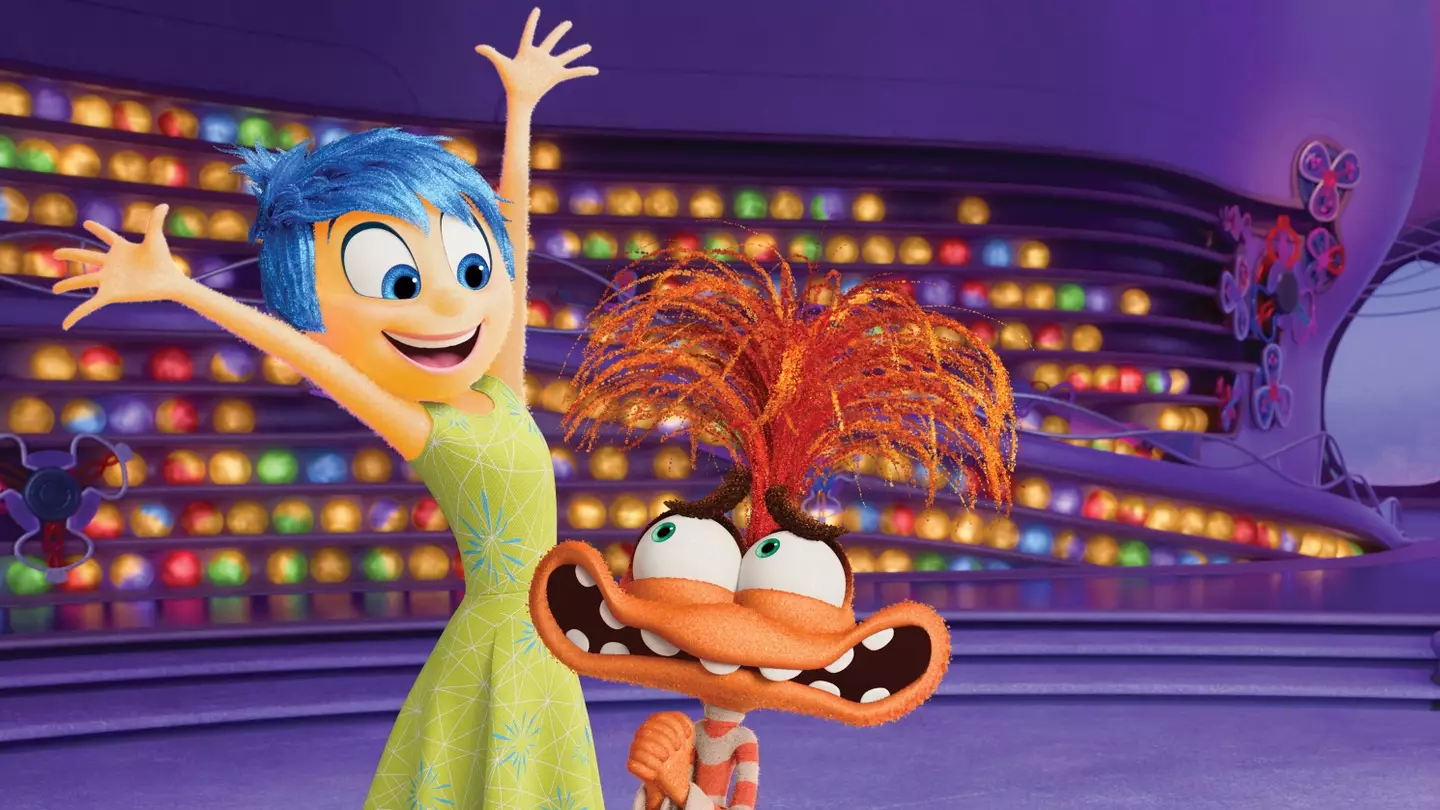
Amy's character, Joy, works tirelessly to ensure that every moment is special for Riley while banishing away the not-so-positive feelings that may arise in her.
However, this exact trait could now be deemed as what we now know as 'toxic positivity'.
Toxic positivity, also known as excessive positivity or positive toxicity, is an example of dysfunctional emotional management where people feel a pressure to only display positive emotions without the full acknowledgment of negative emotions, feelings and reactions - particularly anger, sadness and anxiety.
Socially, it is the act of dismissing another person's negative emotions by suggesting a more positive emotion instead.
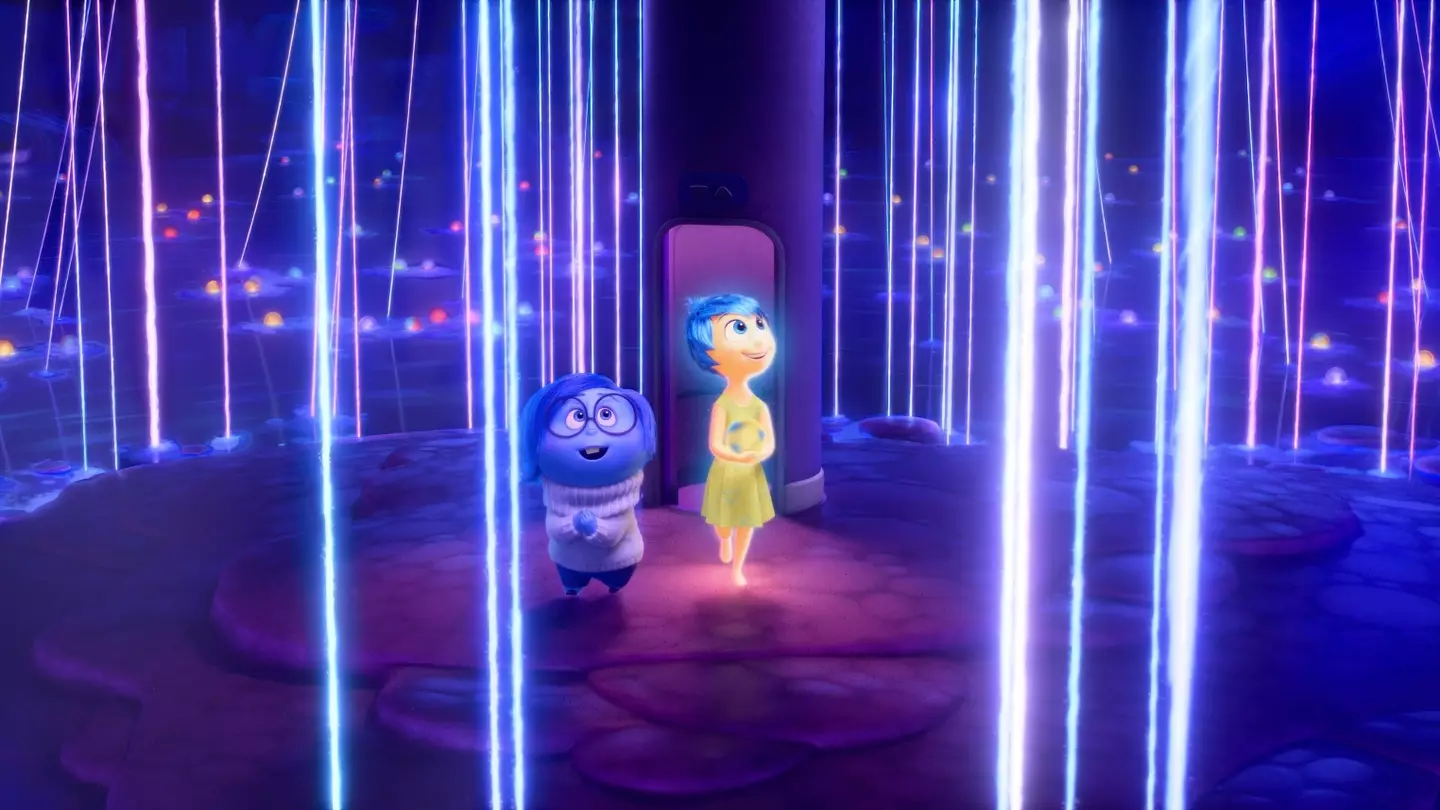
Amy admitted to Tyla that there were 'many flaws' to Joy.
She explained: "One of them is that she tries to create these special moments and it can feel almost [like] gaslighting, you know."
However, what she 'loves' about the film is that it's the direct 'opposite of gaslighting'.
"Pixar is taking into account how difficult this past decade has been," Amy continued. "It really is saying, 'We hear you, anxiety is real'.
"If you try to kind of pass over it or bypass it, and certainly if you have someone like Joy telling you to not worry, to get over it, to be happy, it can feel aggressive.
"It can really feel terrible."
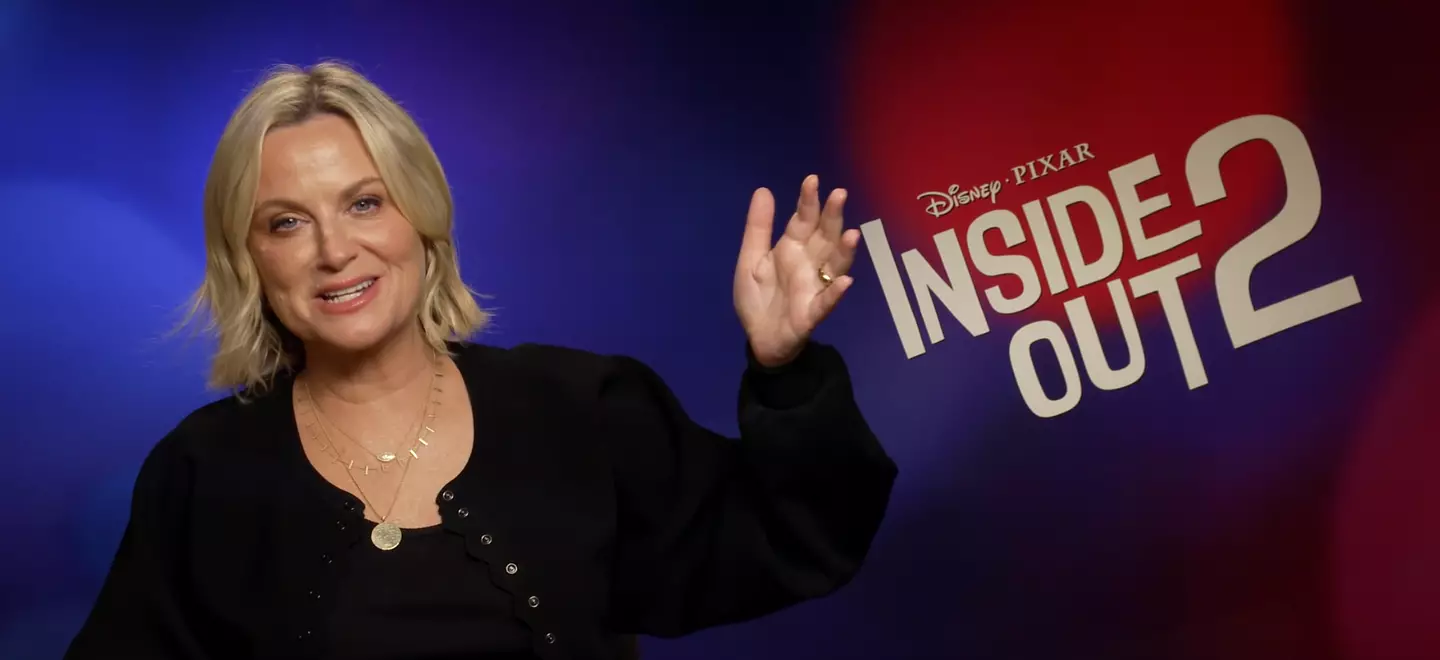
Amy resolved: "So yes, Joy has major blind spots and flaws, where she can't quite absorb that there is a time and a place for other emotions."
What Pixar also did 'so well' with Inside Out 2, according to Amy, is doing a pretty great job of showing the realisation that when we get older, it's harder to make room for Joy.
"She has to kind of realise that isn't something she should take personally," the Parks and Recreation star praised.
"That's life. That's what healthy attachment looks like, that's what healthy parenting looks like that's what taking her care of herself looks like - so everybody's learning!"
Well, I'm sure we're all beyond buzzing to check in with Joy and the gang and see what's in store for Riley later this month!
Inside Out 2 releases in UK cinemas on 14 June 2024.
If you're experiencing distressing thoughts and feelings, the Campaign Against Living Miserably (CALM) is there to support you. They're open from 5pm–midnight, 365 days a year. Their national number is 0800 58 58 58 and they also have a webchat service if you're not comfortable talking on the phone.
Topics: Disney, TV And Film, Celebrity, Mental Health, Parenting